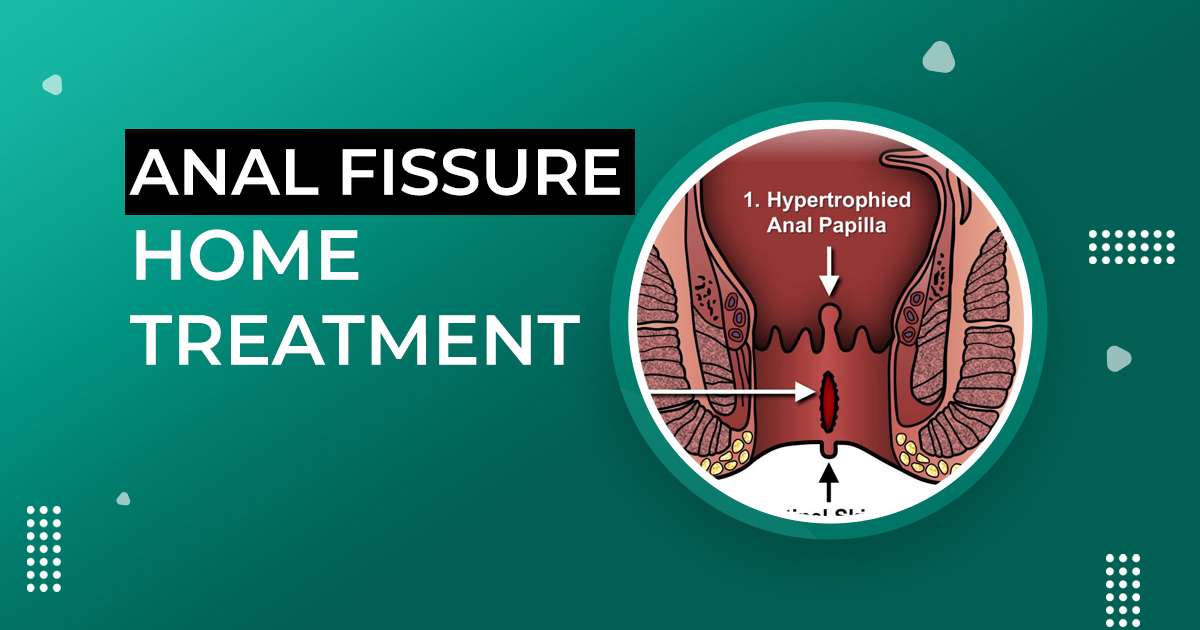Anal fissures can be a distressing and uncomfortable condition. Fortunately, there are various anal fissure home treatment options available to help relieve the pain associated with the condition. In this blog post, we will discuss the various anal fissure home treatments, their effectiveness, and how to best use them.
What is an anal fissure?
An anal fissure, also called an anus fissure, is a tear in the lining of the lower rectum (anal canal) that is caused by trauma of the anal mucosa during the passing of hard or large stools.
👉 Book An Appointment Now For Piles Treatment in Karachi 👈
This is a common problem that can cause intense pain and bleeding during and after bowel movements. Anal fissures are categorized as either acute or chronic depending on their duration. An acute fissure is a tear that has been present for six weeks or less, while a chronic fissure is one that has been present longer than six weeks. Acute fissures are more likely to get better with home treatment while Chronic fissures are more likely to be treated with either medication or surgery.
Suffering from Chronic Fissure?
Treatment for anal fissures typically focus on relaxing the muscles that surround the anus in order to reduce pain and spasms, as well as restoring the health of the damaged tissue. This can be done with topical ointments such as lidocaine, hydrocortisone, or capsaicin, in addition to topical nitrates.
Anal Fissure Home Treatment
The following five strategies helps in the anal fissure home treatment
- Sitz Baths
A sitz bath is a warm water bath that is used to treat anal fissures. It can be done in a bathtub or a shallow bowl. When performing a sitz bath, one should fill the bath with warm but not hot water, so as to avoid burning the skin. The water should be deep enough to submerge the entire area of the fissure. One should then sit in the bath for 15-20 minutes. In order to clean the anal area, unscented, mild soap should be used. Sitz baths help to soothe the irritated area, and can help to restore lubrication of the fissure.
- Ointments
Ointments are solutions that are applied to the skin to help soothe and heal. For anal fissures, ointments that contain antiseptics, numbing agents, muscle relaxants, and essential oils can be used. For example, lidocaine and zinc oxide are both effective numbing agents, while chamomile and sandalwood are both good essential oils to use. Ointments can be applied to the affected area multiple times a day for the best results.
Anal Fissure and Hemorrhoids Both Have Similar Symptoms
- Muscle Relaxants
Muscle relaxants are medications that are used to relax the muscles of the anal sphincter. One of the most common muscle relaxants is diltiazem. This medication relaxes the muscles and helps to reduce the pain and discomfort associated with anal fissures. Muscle relaxants can be taken orally, or they can be applied directly to the skin in an ointment.
- Stool Softeners
Stool softeners are substances that are used to soften stool. For example, fiber supplements, such as psyllium husk, can be taken to soften the stool and make it easier to pass. This helps to reduce the strain on the anal sphincter and can improve the healing of anal fissures and is a main factor in anal fissure home treatment. Additionally, one should drink plenty of fluids to help with proper hydration and soften the stool.
- Dietary Changes
Certain dietary changes can be helpful in treating anal fissures. For example, one should cut back on foods that cause irritation, such as spicy and acidic foods. Additionally, one should increase their intake of fiber-rich foods, such as fruits and vegetables, which can help to reduce the strain on the anal sphincter. One should also avoid constipating foods, such as processed foods, white rice, and dairy products.
Conclusion
There are various home remedies for treating anal fissures. These include sitz baths, ointments, muscle relaxants, stool softeners, and dietary changes. By following these tips, one can find relief from their anal fissures and find long-term relief.

